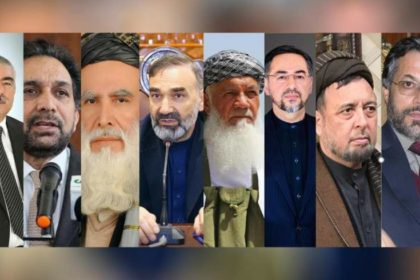RASC News Agency: The Afghanistan Freedom Front (AFF), a prominent armed resistance group opposing the Taliban regime, has claimed responsibility for a targeted nighttime assault in Kabul that allegedly killed two Taliban intelligence agents and wounded two others. The operation, carried out on the night of Saturday, August 2, reportedly took place at a Taliban checkpoint near the historic Darulaman Palace, located in the heart of the capital’s sixth police district. In a statement posted to its official X (formerly Twitter) account, the AFF described the attack as a “precision operation” targeting Taliban operatives engaged in dual roles as intelligence agents and enforcers for the group’s so-called Ministry for the Promotion of Virtue and Prevention of Vice a unit notorious for its systemic harassment of women and repression of civil liberties.
According to the resistance group, the checkpoint housed members of the Taliban’s intelligence apparatus who also played a direct role in monitoring and punishing women for perceived “moral” transgressions under the regime’s draconian codes. The AFF underscored that such agents many of whom it says are deeply embedded in the Taliban’s surveillance and ideological machinery will be considered legitimate targets for future operations. “We will continue to strike at the core of the Taliban’s oppressive networks, particularly those responsible for persecuting Afghanistani women and stifling dissent,” the group stated.
The operation marks the latest in a growing series of urban resistance attacks claimed by the AFF, which in recent months has intensified its campaign against Taliban infrastructure and personnel across Kabul and several key provinces. Just two days prior to this incident, the AFF claimed responsibility for another assault targeting Taliban morality enforcers, again within Kabul a city where Taliban control appears increasingly brittle. Formed in the wake of the Taliban’s violent takeover of Afghanistan in August 2021, the Afghanistan Freedom Front has emerged as one of the principal resistance movements challenging the regime’s claim to power. Though operating largely underground, the group has sustained a campaign of asymmetric warfare that includes assassinations, ambushes, and sabotage operations tactics that have exposed serious cracks in the Taliban’s security apparatus.
The Taliban, which swept back to power promising “security and stability,” has in reality presided over an era marked by deepening authoritarianism, worsening insecurity, and growing public resentment. Despite the regime’s relentless propaganda, its forces have proven increasingly vulnerable to targeted attacks, even in the heavily militarized capital. Human rights observers and analysts note that the Taliban’s intelligence and morality units often indistinguishable in function serve as the regime’s primary instruments of surveillance and intimidation. Their agents routinely detain, interrogate, and abuse civilians, particularly women, under the pretext of enforcing religious codes. These units have been widely condemned both domestically and internationally as tools of repression rather than instruments of justice.
By striking at the operational core of these institutions, the AFF appears to be pursuing not only tactical disruption but also symbolic defiance of the regime’s ideology. The group has pledged to escalate its efforts as long as the Taliban continues its policies of gender apartheid, media censorship, and the silencing of political opposition. While the Taliban continues to enjoy political impunity on the international stage thanks in part to selective engagement and a fractured global consensus the persistence of armed resistance signals a profound and enduring rejection of their rule by segments of the Afghanistani population.






